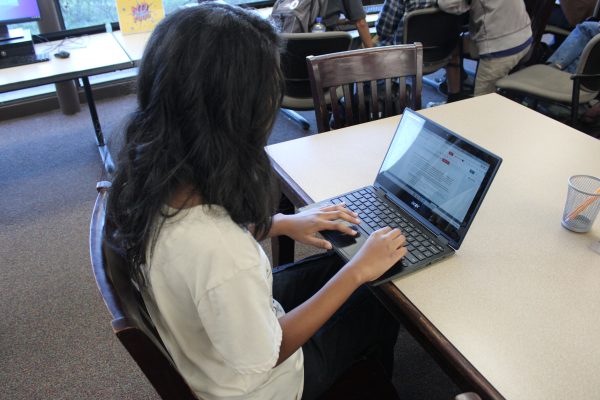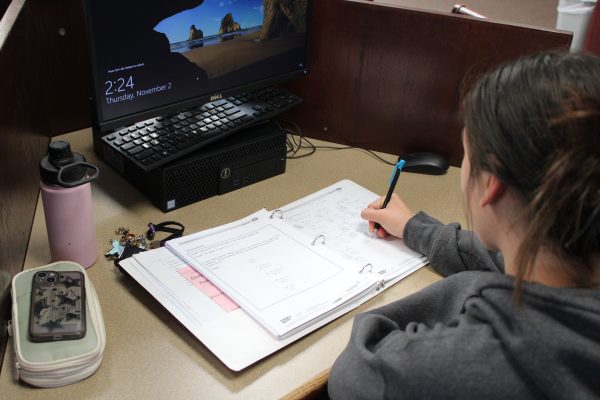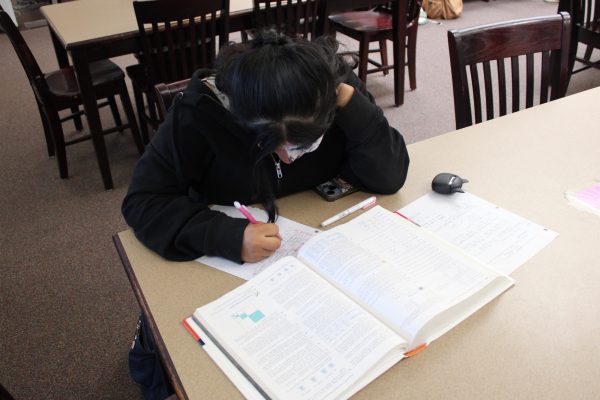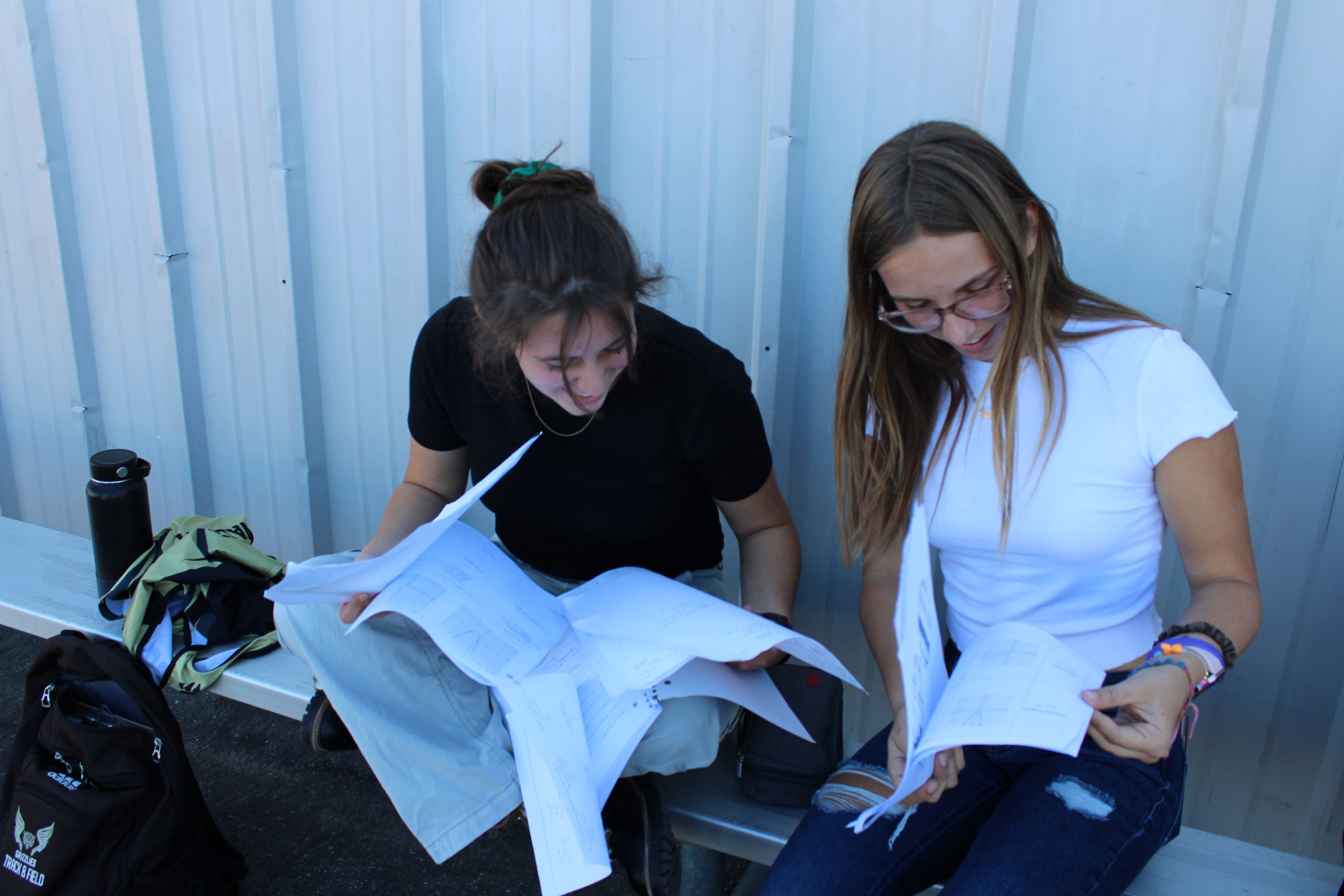Being a student-athlete is a huge commitment, as it becomes hard to find time for yourself. Due to this commitment, there are a lot of sacrifices that are made when joining a sport as a high school student; as school work and other personal matters can get in the way, this results in many teens finding themselves being anxious.

According to ADAA.org “At least half of mental health issues begin by age 14 and 75% of those same issues begin by age 24”. It gets complicated when student-athletes are in AP classes, making it almost unfair when these athletes get marked 50% off their assignments if it’s turned in late due to practices and games.
Individually students go through their own problems but when school and sports are added, it becomes a tangled mess to stay on top of the work. No matter how much one tries to manage their time, at the end of the day, there isn’t enough time to complete everything. “I’ll try to make schedules for myself, so I’ll try at least one hour of my AP, and then one hour on math […] I’m in my room for like six hours, I don’t spend a lot of time doing stuff I enjoy” mentions Lyn Howe, a student-athlete that has to juggle between two AP classes (AP World and AP Bio), being one year ahead in Spanish, honors English, and being in two different sports; Track and Cross Country.
How Come Student-Athletes Are Stressed?
When entering a new grade comes new expectations as teachers require more from their students. In a survey conducted by the The Grizzly Gazette, Noa; three out of six GV students who aren’t involved in sports admit to feeling overwhelmed with the amount of work that needs to be done in such a short amount of time. However, another group of students, who are athletes, have to manage between their classes and sports; five out of six of them admit to feeling overwhelmed. Student-athletes rarely have time to focus on things they enjoy doing, not to mention constantly focusing on due dates or more than one thing- “It’s not a good way to live. […] You have to be able to do things you enjoy because otherwise it’s just work and that’s what drives people to the anxieties and depression, ” mentions Audrey Tait, another student-athlete who is involved in Track, Cross country, school soccer, club soccer, two AP classes (AP Bio and AP World), and she is in Honors English. According to the American Psychiatric Association, “This ongoing worry and tension may be accompanied by physical symptoms, such as restlessness, feeling on edge or easily fatigued, difficulty concentrating, muscle tension or problems sleeping”.
“I like club soccer, but it takes up a lot of time and it’s difficult to manage that and the school work that everyone gives me” say’s Tait. Already being involved in one sport gets in the way of other things, especially when that athlete is committed. Their main focus is constantly on getting better, and working hard; eventually, that becomes draining.
* (club soccer is soccer just played outside of school, meaning Audrey plays soccer in a club).

Audrey was able to share a little bit about her schedule: “I go to club practice after school, […] and then I do homework […] For club soccer, it’s usually two hours long but my coach tends to go over”. Students barely get home to fully relax until seven to nine P.M. In some cases such as Tait, who gets home even later, it results to less time being able to complete homework, meaning that more assignments could potentially be turned in late. “I’m able to get work done but I stay up later- […] around eleven ish if I can ” mentions Tait.
Lyn Howe mentions how everything catches up to her, as she realizes that the day is still not over for her “At the end of the day I’m already like so sucker punch from social, emotional, everything from classes and it’s hard […] to have all that happen and then still spend time on homework”. Being home should be a time of relaxation for student-athletes, to get a break from a full day of working hard, and yet they have homework, unfinished assignments, and projects.
What Do They Need?
“It’s frustrating, but […] when a person is giving you a reasonable amount of time to finish an assignment […] Then I understand how a teacher could be like ‘I’m not giving you this extra time when you had all this time to complete it, and the only reason it’s late is because you waited till the last minute’” say’s Howe. As much as even students admit that a due date is a due date, and it’s important to know how to turn things in on time, students still ask for some more flexibility from teachers. After confirming with Audrey she believes that “We (student athletes) don’t have much time to do homework, we’re always at practice, and we’re working hard; we have less time than most students do”.

Teachers are well aware of student athletes’ cases yet it still seems as if student-athletes aren’t being treated with any sort of empathy and understanding. It could hugely affect student athletes when they ask for a day or two of extension without being marked 50 % off of their assignments, especially when extra credit is not available to try and replace the bad grade, or missing assignment; it therefore leads to students slacking off more.
But there can still be some sort of encouragement, by balancing life with enjoyment and work. Lyn encourages teenagers around her who suffer from these struggles to “Do a hobby, do something that makes you happy, so you don’t feel like your entire life is controlled by school and work”. Perhaps putting less on one shoulder, and making time for yourself if that person can find the time, it could relieve all that stress, on top of that being more flexible and understanding, especially with student-athletes who have a hard time managing the little time they have, could give them a chance to being more successful mentally and physically.




